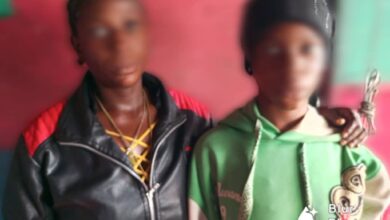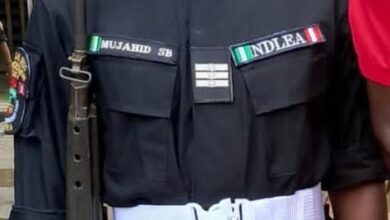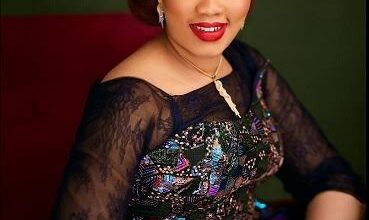Removing roadblocks to the election of an Igbo president in 2023
I’ve always maintained that Nigerians do not practice true democracy. Those who understand the true meaning of democracy will not be able to refute this assertion. I am astounded by the level of political inadequacy in our country as a scholar with extensive knowledge of functional politics.
One thing is certain: our political gladiators see politics as a way to enrich themselves and make money, not as a way to serve and develop society. This demonstrates that our political leaders are both shortsighted and unconcerned about the well-being of society.
The rate at which our political actors switch camps through defection is one way to demonstrate our polity’s social and political inadequacies. That is why many people believe they are nothing more than political smugglers. Among those who pray and hope for a better political order in our nascent democracy amid the confusion caused by political events and situations, I am one of those who prays and hopes for a better political order in our nascent democracy. However, for such a great political order to emerge, “good politicians,” or those who aspire to play politics according to its form and norms, must put in the effort. As a writer, I wish that our society could embrace the concept of political order.
Read also: How will Nigerians cope with another 18 months of Buhari’s presidency?
People in this country have a habit of allowing tribalism and nepotism to overshadow their political ambitions. The current debate over the Igbo presidency is a good example. Why can’t the leaders of the country’s major tribes come together to support the election of an Igbo president in 2023 if they have common sense and rational thinking? I believe it is due to their narrow political interests that they have not done so.
The problem is straightforward. Since the country’s first functional democratic administration in 1999, no Igbo man has been elected president. The closest that happened was during Shehu Shagari’s presidency, when Dr. Alex Ekwueme served as Vice President. It was a foregone conclusion that Ekwueme would succeed Shehu Shagari as President in 1985, at the end of Shehu Shagari’s second term.
But that dream was cut short in 1983, when Gen. Muhammadu Buhari staged the most despised of military coups, thwarting Nigerians’ will and expectations. The country would be better off today if and only if he had allowed politicians to handle the country’s socioeconomic and political problems without sacking Shagari’s political tenure.
The most egregious example of nepotism occurred when President Shehu Shagari was placed under house arrest while the Vice President was imprisoned. Most military generals were enraged by the coup, so they plotted and executed an overthrow of Buhari, led by Ibrahim Babangida. Since then, Nigeria’s presidents have been Olusegun Obasanjo (Yoruba), Umaru Musa Yar’dua (Fulani), Goodluck Ebele Jonathan (Ijaw), Goodluck Ebele Jonathan (Ijaw), and now Muhammadu Buhari (Fulani).
It goes without saying that Buhari’s current administration has pursued anti-people policies that violate democratic norms. In all honesty, the Igbo nation is Nigeria’s second largest tribe and the foremost tribe that has consistently made significant contributions to the country’s development. The Igbo people have, by far, suffered the most political marginalization in this country than any other ethnic group.
Whatever the reason, it appears that there is a blatant conspiracy in Nigeria against the Igbo. Many people in Nigeria, including those who are not Igbo, hold this belief. Anyone with a sense of justice can see the evidence of severe marginalization of the Igbo. The Igbo are the only tribe that tolerates and accepts communality with other tribes, according to history. Other leaders in this country are now under a moral obligation to support the election of an Igbo president in 2023.
In fact, I am surprised by Atiku Abubakar’s plan to become Nigerian President in 2023 after serving as the country’s Vice President for eight years and by Ahmed Bola Tinubu’s moves to become the party’s powerhouse after decades in government. It is now up to the people of good will to decide whether or not this is acceptable. But, in my opinion, it is not a good idea for Abubakar and Tinubu to consider running for president in 2023 instead of supporting an Igbo man who has never served as the executive president since the founding of modern Nigeria. “Unless an Igbo man becomes president, this country will not achieve its deserved political progress in economic development,” Orji Uzor Kalu said a few years ago.
Read also: DIRECTOR-GENERAL INAUGURATES NYSC MEGA PRINTING PRESS
The Igbo man may have human flaws, but he is more accommodating and has a positive outlook in general, which allows him to embrace members of other tribes. To put it another way, Atiku and Tinubu must recognize the reason and recognize that it is past time for an Igbo man to be given a chance.
The Igbo man should be considered for the presidency on rational and equitable grounds. Some Igbo sons have already expressed interest in running for president, including Anyim Pius Anyim, David Umahi, and Owelle Rochas Okorocha. We anticipate that more people will express interest, because “the more the merrier.” However, the Igbo should recognize that no Igbo man can become president of this country without the help of other tribes, and they should begin to reach out. After all, if an Igbo man is elected president, he cannot be succeeded by another Igbo man as Vice President. As a result, I believe that in the year 2023, an Igbo man should be given a chance.




